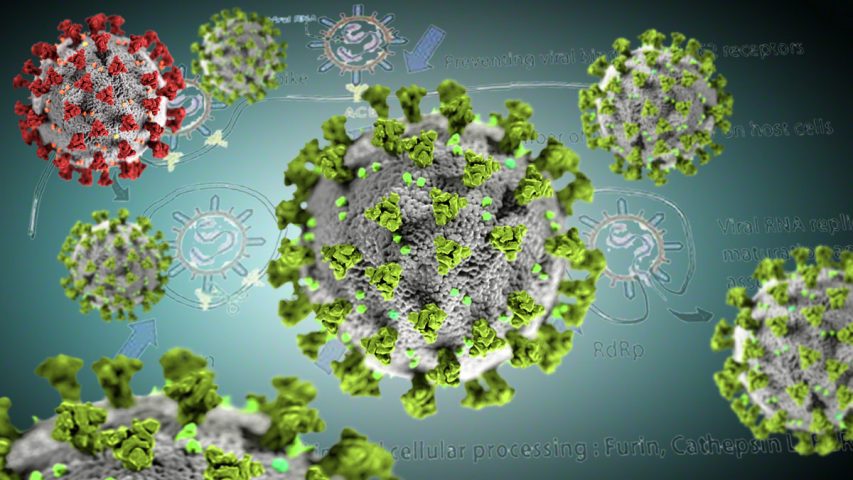A new study carried out by scientists at the Dr. Rath Research Institute compares the efficacy of combinations of plant extracts and micronutrients against the original SARS-CoV-2 virus and its Alpha, Beta, Gamma, Delta, Kappa, and Mu variants. Testing 5 different formulas on human lung cells, a combination containing vitamin C, N-acetylcysteine, and 7 specific plant extracts was found to be highly effective in simultaneously inhibiting multiple mechanisms of viral infection. Together with the recently established clinical evidence that vitamin C infusions can successfully combat COVID-19 even in its advanced stages, the scientists propose that the use of plant extracts could represent a new approach against SARS-CoV-2 and its various mutations.
Published in the European Journal of Microbiology and Immunology, the paper describes how it is foreseeable that control of the rapidly emerging mutations of SARS-CoV-2 will be compromised by the need to potentially develop new vaccines for every new variant, as well as by the related scientific, economic, and social consequences resulting from following such a strategy. As such, it is becoming increasingly clear that new approaches to controlling the pandemic are urgently needed.
In contrast to the risks of RNA- and DNA-based COVID-19 vaccines, the use of natural compounds provides an opportunity to simultaneously control a variety of mechanisms associated with SARS-CoV-2 infection with a high margin of safety. Earlier studies conducted at the Dr. Rath Research Institute have already identified the efficacy of plant-derived compounds against cellular mechanisms of SARS-CoV-2 infectivity.
In this latest study, the institute’s scientists evaluated the efficacy of combinations of micronutrients and plant extracts against newly emerged mutated forms of SARS-CoV-2 and the activity of key enzymes involved in viral processing in human lung cells. The approach aimed at simultaneously inhibiting multiple cellular mechanisms involved in SARS-CoV-2 infectivity, thereby opening up new avenues towards global control of the pandemic.
The scientists found that all 5 of the plant extract and micronutrient combinations tested inhibited the binding of the virus to its angiotensin-converting enzyme 2 (ACE2) cellular receptor by at least 50 percent. Particularly impressively, a formula containing vitamin C, N-acetylcysteine, resveratrol, theaflavin, curcumin, quercetin, naringenin, baicalin, and broccoli extract was able to inhibit binding by 90 percent, as well as decrease the availability of ACE2 receptors on human lung cells and reduce the activity of viral RNA-dependent RNA polymerase (RdRp), an enzyme necessary for viral replication. The 9-component combination was effective against all 6 of the SARS-CoV-2 variants used in the study.
The scientists say that, with its aim of simultaneously controlling several cellular mechanisms associated with SARS-CoV-2 infectivity, their study represents a new and comprehensive approach to COVID-19. The results clearly show that when combined, the 9 plant extracts and micronutrients can significantly affect critical steps in the cellular infectivity of the original SARS-CoV-2 strain and its Alpha, Beta, Gamma, Delta, Kappa, and Mu mutations. Together with the clinical evidence that high-dose intravenous vitamin C greatly reduces mortality from COVID-19, the scientists conclude that the use of plant extracts could open up new avenues towards an effective global control of the pandemic.







